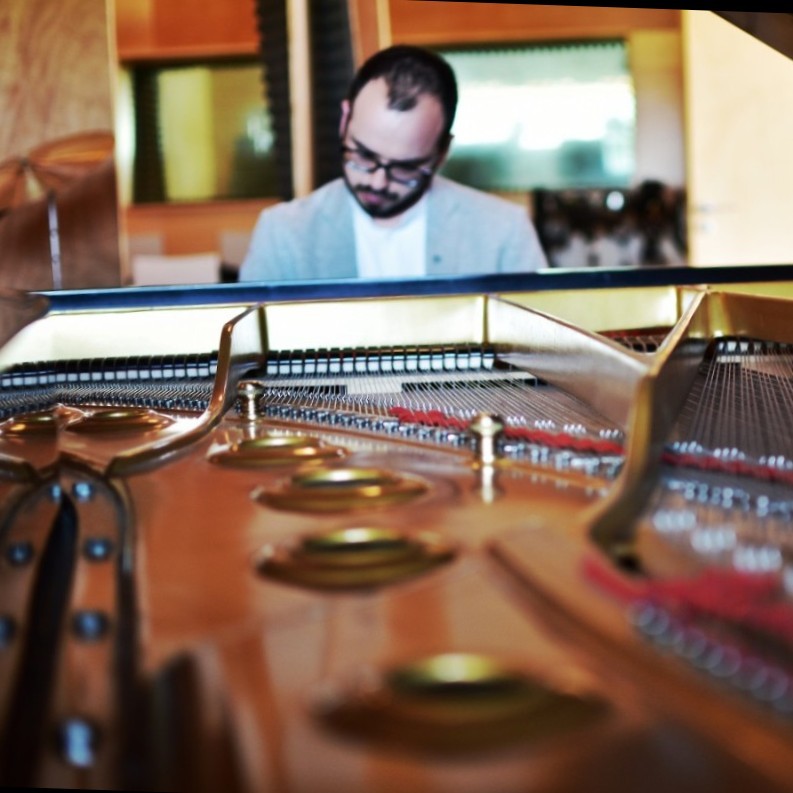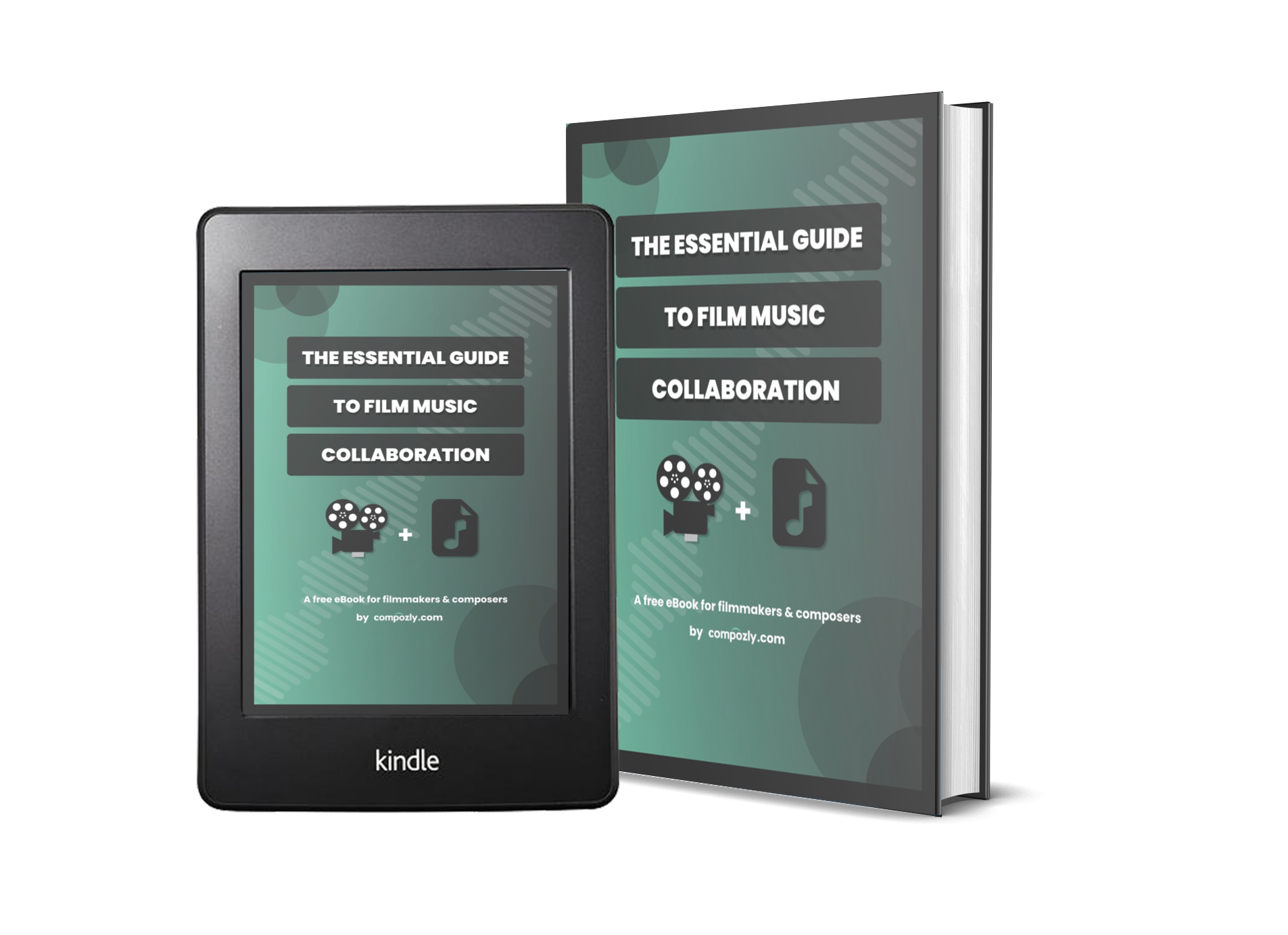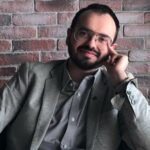Daniele Ciminiello
How did you first get into music to become a film composer?
So basically I started studying music when I was 12 years old and I started with the piano and I did the classical pathway. I studied in a conservatory and I have a master’s degree in piano and in composition.
Also in composition, I started with classical composition, classical and contemporary composition. So Avant-garde music, and at the same time, I got a lot of experiences as a keyboard player and some projects that never got too much success, but I mean, it was good for me just to have different experiences.
Then what happened after I finished my studies, I did a postgraduate master in film music with a professor that graduated from Berklee College of Music. This was my beginning. This is how I started to get interested in film music. So it was the first time, even for me, to learn how to use a DAW.
This was four years ago. So I already had a solid background in classical and contemporary music, and I already had collaborations with labels. A lot of my pieces have been published by some labels and I still keep working with them. But at the same time, I started to be very interested in this other side of the music, which is music for images for screen. So what I’m doing now in this field is basically composing for some music libraries. I didn’t really get into this business. Let’s say I’m not in a rush. But that’s why I got interested in your Compozly when I applied, because I saw it as a possibility to at least get in touch with some filmmakers.
Is composing for music libraries you primary source of income? If so, which libraries are you working with?
I’m quite new in this field actually. My primary source of income is teaching. I’m a piano teacher. This is my primary source of income and not from sound libraries.
I’m currently working with a company called TAXI and getting in contact with some sound libraries. I currently have a contract with the sound library called AudioHooks.
I made an album with them, but after two years, it didn’t really bring too much income. That’s why now I’m trying to get into bigger sound libraries. That’s why I’m avoiding the smaller sound libraries. And I’m not in a rush, even if this will take years, it’s fine, but I prefer to have a few deals, but good ones.
What are your career goals are when it comes to composing for film, TV and media?
It would be great to work on a documentaries. What I really would like is to have the experience working with a director, so with someone that is not a musician. I feel it could be really a great opportunity also to see the music from another perspective.
And I would really love this kind of collaboration for an income of course, but also to learn something more. I’d like to expand my skill set and take on a new challenge. I think for us as musicians, that’s what we’re always looking to do.
“Any collaboration starts on the human side“
– Daniele Ciminiello
Do you have a favorite piece of music or project that you’ve worked?
Well, a project that gave me a huge satisfaction was one piece for orchestra that I composed that has been performed live in a festival and recorded and released recently. This was a music piece that really gave me a lot of good feedback from listeners.
There is one song on my Soundcloud that I did recently, it’s a kind of trailer music. It’s called ‘World of Wonder‘. This is a piece that I would like to showcase.
There is also my album for piano, called ‘Message in a Bottle‘. Another project that’s honestly brought me a lot of very good feedback.
What is your music composition process?
Let’s say that since I work in really different music genres, there are differences in the way I compose. For example, of course, if I had to work on a video, the starting point is always the video. So it’s the video that somehow suggests to me what kind of music will fit, but in general, for any kind of music, my starting point is the piano. So I try on the piano to find the right theme, the right mood, the right atmosphere, simply because it’s my primary instrument.
I’m confident with it and it’s easy for me. The second stage is always the score. I write the music sheet because my background is classical. Even if I have experience with DAW’s, it’s really hard for me to work directly on it.
In order to record the track, then I really need the sheet music. At least at this point, once I do this, the next step is tracking the piece. So if I’m doing in home production, of course I will do the tracking myself.
Once the music piece is tracked and all the production is finished, then I will take care of the mixing, mastering – everything. If I’m not mixing the music, then it’ll go to a mixing and mastering engineer.

How does your music style stand out from other composers?
It’s a good question. There are a lot of aspects that come from classical music in my music. I mean, you can feel a different taste in the melodies, in the harmonies and all of this. There is a heritage that comes from classical music. I don’t know. I usually put a lot of care into the melody. When I compose, what I try to do is to make the melody smooth and spontaneous, but also very well shaped.
So usually I don’t just leave the first idea. I really work on it. I craft the melody in a way that at the end, I say, “yes, this suits me. I like it”.
What are your biggest challenges as a composer?
Finding a job as a composer for me at this moment, it’s really hard to find a paying job. I mean, a job that can deliver a good decent pay.
I’m trying now to gain experience with Taxi and with all these things to build and gradually increase the quality of my production at the level that I can reach. So for now, my primary source of income is still teaching, and I’m not in a rush.
Another thing I’m aiming for is trying to meet filmmakers to build my network. It’s a slow process.
Nowadays you can reach everywhere in the world online, but I think that any collaboration starts on the human side. So rather than talking about music at the beginning, talk about your hobbies and interests.
I prefer to tell them that I’m a person that’s easy to work with. I’m quite serious in what I do. And I respect all the deadlines and also the teamwork. I also have a positive attitude.
In my work, I never get frustrated or negative about anything. At least for me, it’s important to know these things about people I work with. Chemistry is important for sure.
Resources
Full Audio Transcript
I would love to learn about how you got into music and became a composer and musician.
Yes. So basically I started studying music when I was 12 years old and I started with the piano and I did the classical pathway. I studied in a conservatory and I have a master’s degree in piano and in composition.
So also in composition, I started with classical composition, classical and contemporary composition. So Avant-garde music, and at the same time, I got a lot of experiences as a keyboard player and some projects that never got too much success, but I mean, it was good for me just to have different experiences.
Then what happened after I finished my studies, I did a postgraduate master in film music with a professor that graduated from Berklee. And this was my beginning. This is how I started to get interested in film music. So it was the first time, even for me, to learn how to use a DAW.
This was four years ago. So I already had a solid background in classical and contemporary music, and I already had collaborations with labels. So a lot of my pieces have been published by some labels and I still keep working with them. But at the same time, I started to be very interested in this other side of the music.
So music for images for screen. So what I’m doing now in this field is basically I’m composing for some libraries. I didn’t really get into this business. Let’s say I’m not in a rush. But that’s why I got interested in your website when I applied, because I saw it as a possibility to at least get in touch with some filmmakers.
I’m curious if that’s kind of your primary source of income or if that’s kind of a new thing and would love to kind of learn, learn more about your experience there so far.
Yeah, no, I’m quite new in this field actually. My primary source of income is teaching. I’m a piano teacher. This is my primary source of income and not from sound libraries. It’s quite a new thing.
Are you able to share like which sound libraries you’re working with or kind of just investigating at this point?
I’m currently with a company called TAXI. I’m getting in contact with some sound libraries. I currently have a contract with the sound library called AudioHooks.
I have an album with them, but after two years, it didn’t really bring too much income. That’s why now I’m trying to get into bigger sound libraries. That’s why I’m avoiding the smaller sound libraries. And I’m not in a rush, even if this will take years, it’s fine, but I prefer to have a few deals, but good ones.
Curious to know what your goals are when it comes to composing for film, TV, media, anything in particular that you’re looking to work on that interests you?
Yes, of course. It would be great. Working on a documentary for example, I would really like to try, and in general, what I really would like is to have the experience to work with a director, so with someone that is not a musician I feel it could be really a great opportunity also to see the music from another perspective.
And I would really love this kind of collaboration of course, also for an income, but also to learn something more. Yeah. Kind of expand your skill set and take on a new challenge. I think for us as musicians, that’s what we’re always looking to do.
Is there one particular piece of music or maybe one project that you’ve worked on so far, that is your favorite project or most proud of?
Well, a project that gave me a huge satisfaction was one piece for orchestra that I composed that has been Life performed in the festival and recorded and released recently, actually mm-hmm and this has been a piece that really gave me a lot of good feedback from, from listeners.
There is one song on my Soundcloud that I did recently, it’s a kind of trailer music. It’s called Bored of Wonder. This is a piece that I think, I mean, I would like to showcase. And there is also my album for piano, a piano album, which is also on Soundcloud. And it’s called Message in a Bottle. Another project that’s honestly brought me a lot of very good feedback.
How do you go about composing a piece of music?
Yes. Let’s say that since I work in really different music genres, there are differences in the way I compose.
For example, of course, if I had to work on a video, the starting point is always the video. So it’s the video that somehow suggests to me what kind of music will fit, but in general, for any kind of music, my starting point is the piano. So I try on the piano to find the right theme, the right mood, the right atmosphere, simply because it’s my primary instrument.
And so I’m confident with it and it’s easy for me. The second stage is always the score. So writing the music sheet because my background is classical. Even if I have now experience with DAW’s, it’s really hard for me to work directly on it.
Just recording the track. I really need the sheet music. At least at this point, once I do this, the next step is tracking the piece. So if it’s a thing that I’m doing in home production, of course I will do the tracking myself, see if it’s a project that involves live musicians.
Instead I will send the music notes. And then I do this once the piece is tracked, so all the production is finished. I will take care of the mixing, the mastering, everything. If it’s not it’ll go to a mixing and mastering engineer. And working instead with the label that usually involves live musicians and the label takes care of the mixing and mastering.
What DAW do you use?
I use Reaper. I started with Digital Performer in my course. And at least the ones that are supported by Windows because I’m a Windows user. Got it. Okay. And then I landed on Reaper and for now I don’t plan on switching.
What about your music do you think is kind of unique to you and is representative of your music style and kind of stands out a bit compared to the other composers?
Well, it’s a good question. There are a lot of aspects that come from classical music in my music. I mean, you can feel a different taste in the melodies, in the harmonies and all of this. So for sure, in my music there is. There is a heritage that comes from classical music. I don’t know. I usually take a lot of care about the melody. When I compose, what I try to do is to make the melody of course, smooth, spontaneous, but also very well shaped.
So usually I don’t just leave the first idea. I really work on it. I craft the melody in a way that at the end, I say, yes, this suits me. I like it.
What music projects do you have coming up?
Yes. I’m working on a new piece for orchestra. Also, this is a classical piece. Writing this for a label that I work with is called Fama music, Fama music.They’re very active in this classical contemporary music journal, I’m working on this piece for them.
And recently I also composed some other pieces for some libraries for orchestra, for solo piano.
What are your biggest challenges as a composer and how are you looking to resolve them?
Finding a job as a composer for me at this moment, it’s really hard to find a paying job. I mean, a job that can deliver a good decent pay.
Will be exactly to make a stable income in composing. I’m trying now to gain experience with Taxi and with all these things to build and gradually increase the quality of my production at the level that I can reach this goal. So for now, my primary source of income is still teaching, and I’m not in a rush.
Another thing I’m aiming for is trying to meet filmmakers to build my network. It’s a slow process.
Do you go to any in person film meetups or anything like that? Or is it primarily online that you’re trying to connect with other filmmakers?
Both. Of course online is nowadays kind of easier, right? You can reach everywhere in the world. I think that any collaboration starts on the human side. So rather than talking about music at the beginning, talk about your hobbies and interests.
I prefer to tell them that I’m a person that’s easy to work with. I’m quite serious in what I do. And I respect all the deadlines and also the teamwork. I also have a positive attitude.
In my work, I never get frustrated or negative about anything. At least for me, it’s important to know these things about people I work with. Chemistry is important for sure.
Are you a music composer?
Join the composer community by quickly creating your free Compozly profile Create my account
Get your FREE copy of "The Essential Guide to Film Music Collaboration" to help create better music for your film and video projects.
© 2025 Compozly, LLC ALL RIGHTS RESERVED

